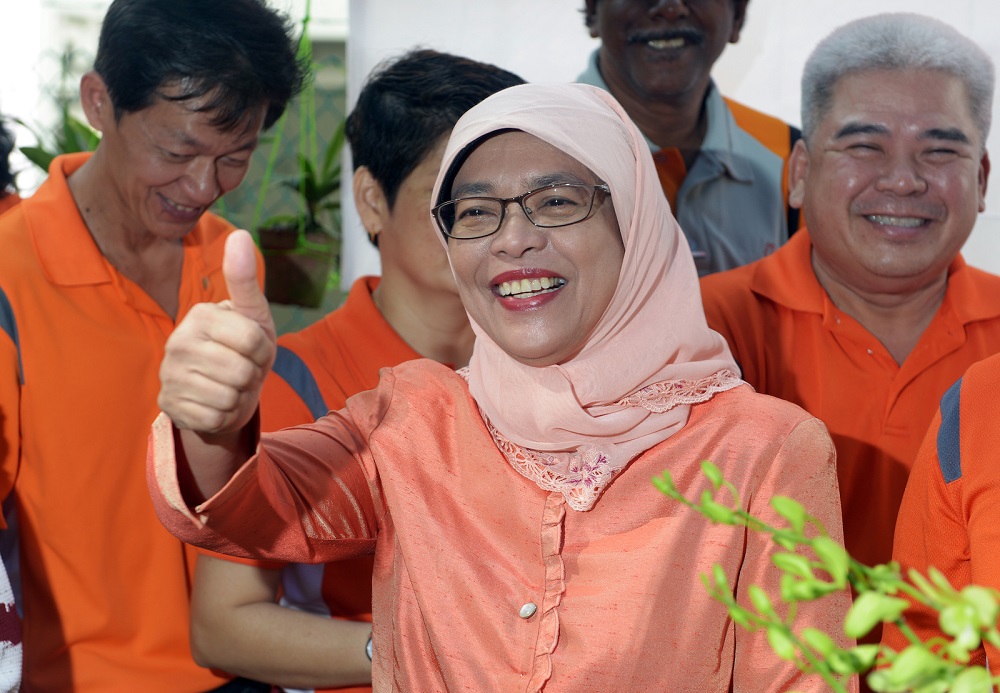Halimah Yacob, a former parliament speaker, became Singapore’s first woman president on Wednesday in a contest where she was sole candidate because no one else was qualified to run.
Aiming to strengthen a sense of inclusivity in the multicultural city-state, Singapore had decreed the presidency, a largely ceremonial post, would be reserved for candidates from the minority Malay community this time.
“Although this is a reserved election, I’m not a reserved president,” Halimah said in a speech at the elections department office. “I’m a president for everyone.”
Halimah’s experience as house speaker automatically qualified her under the nomination rules.
Of the four other applicants, two were not Malays and two were not given certificates of eligibility, the elections department said earlier this week.
The Elections Department said only one of five hopefuls had qualified. It said the others had not satisfied stringent criteria, such as having held key public positions or running a company with at least 500 million Singapore dollars ($370 million) in equity.
The last Malay to hold the presidency was Yusof Ishak, whose image adorns the country’s banknotes.
Yusof was president between 1965 and 1970, the first years of Singapore’s independence following a short-lived union with neighboring Malaysia, but executive power lay with Lee Kuan Yew, the country’s first prime minister.
The separation of Singapore from Malaysia gave ethnic Malays a clear majority in Malaysia, while ethnic Chinese formed the majority in independent Singapore.
Halimah, a former member of the ruling People’s Action Party, entered politics in 2001. She won four parliamentary elections before being chosen speaker. She resigned from the party last month.
She is to take office at a later date.
“I can only say that I promise to do the best that I can to serve the people of Singapore, and that doesn’t change whether there is an election or no election,” she said.
Singapore’s Constitution allows the president to veto the use of the country’s reserves and some public appointments, but doesn’t give the post any executive authority.
The city-state has a population of 5.6 million. It is 74.3 percent Chinese, 13.4 percent Malay, 9.1 percent Indian and 3.2 percent others.
The rising threat of terrorism makes unity crucial, said outgoing President Tony Tan. “One of these days, an incident will happen. And when that happens, it’s very important to ensure we do not allow it to destroy our cohesion, or to have tensions between the various communities,” he was quoted as saying by The Straits Times newspaper.
“In that respect, reserving this next election for the Malays is appropriate — unfortunately, because of these circumstances around the world which Singapore is caught up in,” Tan said.
Tan, a former deputy prime minister, was elected in a tight race in 2011. He received 35 percent of around 2.1 million votes.
Analysts said Singaporeans may take time to accept such reserved elections. The country’s first contested vote for president was held in 1993.
“It is not a surprise therefore that there is unfamiliarity with it, a questioning of whether any of it is needed, and a sense of ambivalence about having only candidates of one racial group contest in it,” said Gillian Koh, a senior research fellow at the Lee Kuan Yew School of Public Policy.
